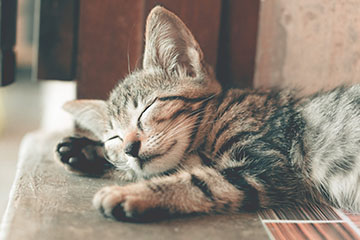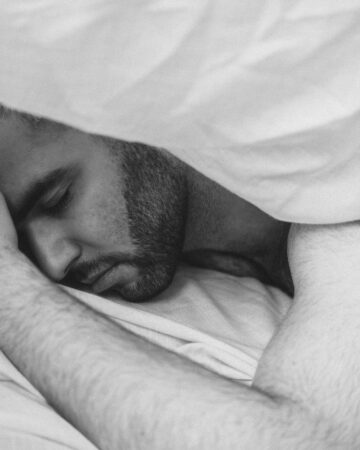Sleep Tips and Book Recommendations – Finally Change Your Sleep Habits!
You may think you know all the basics, but skimming these tips might trigger a new habit that can change your sleep destiny FOREVER!
And as a result, your energy, health, and happiness will change!
Poor quality and insufficient sleep also reduce the body’s immune function, making us more vulnerable to sickness and disease.
Sleep and immunity impact each other.
During sleep, the body goes through a series of cleansing, healing, and detoxification processes. Without adequate sleep, the body cannot efficiently complete these important functions – resulting in an accumulation of waste, and eventually, the body will display symptoms of illness.
You can do this! Help your body achieve optimal energy levels and immune function by getting the proper amount of sleep!
The Basics: Sleep Hygiene Checklist

- Be in bed by 10:00 pm at the latest (sleep and awaken as closely to the sun as possible)
- Finish eating and drinking at least 2-3 hours before bedtime (deeper rest when there is less to digest)
- Turn off or remove electronics from the bedroom (do not sleep next to a cell phone)
- Make your bedroom as dark as possible (light affects melatonin production and reduces the quality of sleep)
- Keep the room at a cool temperature
- Use a fan (not blowing on you) to create white noise to help you fall asleep
- Use organic bedding if possible
- Move the bed away from the walls to reduce exposure to dirty electricity
- Open the window to the bedroom (if possible and safe) to allow fresh air into the room before or while you sleep
- Avoid stimulants (food, drinks, drugs, etc.) – especially in the afternoon
- Sunlight therapy – exposing your eyes to natural sunlight in the morning can have a significant impact on your sleep and overall well-being. This practice is often called “morning light therapy” or “light exposure therapy.”
Sunlight Therapy
As mentioned above, exposing your eyes to sunlight first thing in the morning can have a profound effect on your sleep.
Here’s why it’s important and how it works:
Regulation of Circadian Rhythms: The human body operates on a 24-hour internal clock known as the circadian rhythm. This rhythm is influenced by the presence or absence of light.
Natural sunlight, particularly the blue light component, helps to reset and regulate the circadian rhythm. Exposure to natural light in the morning helps signal to your body that it’s time to wake up and be alert. It also helps synchronize your internal clock with the external day-night cycle, which is essential for maintaining a healthy sleep-wake pattern.
Melatonin Production: Sunlight exposure in the morning suppresses the production of melatonin, a hormone that makes you feel sleepy. By inhibiting melatonin production during the day, you’ll feel more awake and alert.
In the evening, when the sun sets and natural light decreases, your body will start producing melatonin, signaling that it’s time to wind down and prepare for sleep.
Improvement in Sleep Quality: A regular morning exposure to sunlight has been shown to improve sleep quality and duration.
People who get sufficient natural light exposure during the day tend to fall asleep more easily at night, experience fewer sleep disturbances, and enjoy deeper sleep. This is because their circadian rhythm is more aligned with the natural light-dark cycle.
Management of Sleep Disorders: Morning light exposure can be particularly helpful for individuals with sleep disorders like insomnia or delayed sleep phase syndrome.
By helping to reset the circadian rhythm, morning light therapy can assist in shifting the sleep-wake pattern to a more desired schedule.
Boosting Mood and Well-Being: Sunlight exposure triggers the release of serotonin, a neurotransmitter associated with mood regulation and feelings of well-being.
This can lead to improved mood, reduced symptoms of depression, and increased overall energy levels.
Another way to get vitamin D exposure is through a Sperti lamp if you live in a cold climate. I recently ordered one now that I live in Iowa and I’m hoping it’ll do the trick!
To Make the Most of Morning Light Exposure for Better Sleep:
Get Sunlight Exposure Early: Aim to get outside within the first hour of waking up to receive the most potent natural light exposure.
Avoid Artificial Light at Night: In the evening, limit exposure to bright artificial light sources, especially blue light from screens, as it can interfere with melatonin production and disrupt your sleep.
Consistency Matters: Regularity is key. Try to expose yourself to natural light at the same time each morning to help regulate your circadian rhythm effectively.
Duration: Spending around 15 to 30 minutes in the morning sunlight is usually sufficient to signal your body to wake up and kick-start your circadian rhythm.
Use Caution: While morning sunlight is beneficial, it’s essential to protect your eyes from excessive sunlight to avoid potential eye damage. You don’t need to stare directly at the sun – simply being outdoors during the early morning hours should be sufficient.
Remember that individual responses to light exposure can vary, so it’s a good idea to observe how your body reacts and adjust your routine as needed.
Supplements Used for Sleep
Supplements are not recommended, in general. However, natural herbs may help with sleep when all other sleep hygiene practices have been tried. Here are a few:
- Reishi Tea: Made from the Reishi mushroom (Ganoderma lucidum), it is often suggested as a natural remedy for various health benefits, including sleep improvement. The effects of Reishi tea on sleep are not yet well-established through rigorous scientific studies, and individual responses can vary.
- Melatonin: Melatonin is a hormone that regulates the sleep-wake cycle. Taking melatonin supplements can help adjust your body’s internal clock and improve sleep onset. It’s only recommended on rare occasions, such as resetting a sleep cycle after jet lag.
- Valerian Root: Valerian is an herb used for centuries as a natural remedy for insomnia and anxiety. Some studies suggest it may help with sleep onset and quality, but more research is needed.
- L-Theanine: L-Theanine is an amino acid found in tea leaves. It has a calming effect and may promote relaxation and better sleep. It’s often combined with other supplements like melatonin.
- Magnesium: Magnesium is an essential mineral that plays a role in muscle relaxation and stress reduction. Some people find that magnesium supplements help them relax and fall asleep more easily.
- Chamomile: Chamomile is an herb that is often consumed as a tea. It has mild sedative effects and may help with relaxation and sleep.
- Passionflower: Passionflower is another herb traditionally used for its calming properties. It may help with anxiety and promote better sleep.
- 5-HTP (5-Hydroxytryptophan): 5-HTP is a precursor to serotonin, a neurotransmitter that plays a role in mood and sleep regulation. Some studies suggest that 5-HTP supplements may improve sleep quality.
- Glycine: Glycine is an amino acid shown to have a calming effect on the brain and may help improve sleep quality.
- Ashwagandha: Ashwagandha is an adaptogenic herb that may help reduce stress and promote relaxation, potentially leading to better sleep.
- CBD (Cannabidiol): CBD is a non-psychoactive compound derived from cannabis plants. Some people report that CBD helps them relax and sleep better, although more research is needed to understand its effects on sleep fully.
Sleep, Stress, and Exercise
These three areas of our lifestyle are the basic fundamental prerequisites to creating a healthy body and mind.
All three factors affect one another.
When in balance, they help to support a parasympathetic state in the body and lead us to higher levels of energy, joy, and immune function.
Want More Energy?
Many people mistakenly attribute low energy levels to their diet – which certainly can be a contributing factor – but often, they lack energy because of the quality and duration of sleep they are getting.
So let’s get some sleep and wake up energized!
Mindfulness Apps that Help with SLEEP
I read the books by all the following app creators – and I’ve used all three apps. There is something for everyone in each one. I highly recommend ANY of them (and their books).
My personal favorite is Waking Up. Sam Harris has such a soothing voice, and there are so many conversations with great thinkers that I’m able to fall asleep listening to any of them. Of course, it includes guided sleep meditations, as well.
Here are the three I recommend – and they all offer a free trial to test them out. I have no affiliation with any of them – I simply want you to get a good night’s rest for optimal health!
1. Waking Up by Sam Harris
This app offers a range of meditation practices that can help people fall asleep more easily.
By guiding users through mindfulness exercises and breathing techniques, the app can help reduce stress and anxiety levels, which are often major contributors to sleep difficulties.
Additionally, the app includes audio recordings of calming nature sounds and ambient music, which can create a soothing atmosphere conducive to sleep.
With regular use, the Waking Up app can help users establish a healthy sleep routine and improve the quality of their rest.

2. 10% Happier
The mindfulness exercises and guided meditations can help calm the mind and reduce stress, which can lead to improved sleep quality.
Additionally, the app offers a “Sleep” category within its guided meditations section, which includes meditations specifically designed to help you fall asleep and stay asleep.
3. CALM
CALM is an app designed to help you relax and reduce stress through guided meditations, sleep stories, and soothing sounds.
It offers a variety of meditation sessions specifically designed to help you fall asleep faster and stay asleep longer, such as the “Sleep Stories” feature which narrates bedtime stories in a calming voice.
CALM can be a great tool to use before bed to help calm the mind and promote a restful night’s sleep.
Tips from the World’s Most Measured Human, Bryan Johnson
| Hi Friend, High-quality sleep changed my life. It took me years to build the habits and systems that led to eight months of 100% perfect sleep. As far as I know, this is the best in the world. I’m going to teach you the habits for excellent sleep. We all know the energizing feeling of a great night’s sleep. It rejuvenates the body, boosts brain function, powers the immune system immunity, and regulates hormones. It’s the foundation for well-being and longevity. On the other hand, sleep deprivation impairs. Being constantly awake for 18 or 24 hours is equivalent to having a blood alcohol content of 0.05% or 0.1%, respectively. In the U.S. 0.08% is considered legally intoxicated. Also, get six hours or sleep or less on average and you’re 4.2x times more likely to develop the common cold. And if you need any more motivation, one night with 4 hours of sleep showed a 70% reduction in the activity of natural killer cells in 18 out of 23 participants. One night of subsequent normal sleep was enough to restore NK activity to its baseline. Natural killer cells are what’s killing cancer cells among other functions. Preclinical studies have established a causal link between the lack of sleep inhibition of immune surveillance and increased tumor growth in animal models. Sleep deprivation diminishes cognitive functions, slows reflexes, and gives rise to poor decision-making. It’s linked to heart disease, diabetes, obesity, anxiety, depression and weakened immunity. If you only do one thing for your health: sleep. Learn 10 habits. Reframe Your Identity: You are a professional sleeper. Make sleep your #1 priority. Nothing influences your conscious existence more. Plan your day around sleep. It’s the most important appointment in your calendar. Get buy-in and support from others by explaining your priorities. Ignore those who say sleep is for the weak. They’re drunk from sleep deprivation. Sleep will make you a top performer. Create a 30-60 minute Wind-Down Routine: Set a specific time each evening to start wind down, for example: Engage in relaxing activities like reading or taking a warm bath. An online randomized clinical trial on 991 subjects concluded that reading a book in bed improved sleep quality in a majority of participants, as self-reported by the participants using SQS scoring. Practice mindfulness or deep breathing exercises. In a wide meta analysis, mindfulness meditation outperformed controls and proved equivalent to medications in treating sleep disturbances. Listen to soothing music: Soft, calming music can help signal that it’s time to sleep. In a study on 94 students, soothing classical music outperformed a negative control and an audiobook at improving sleep quality and reducing depression. In older adults too, a meta analysis of 9 studies with 489 participants showed significant improvements with sleep latency, duration, and efficiency with various music interventions in multiple settings and countries. Get Morning Light: Get outside within the first 15-30 minutes of waking to set your circadian rhythm and boost mood. Use a light therapy device if natural sunlight isn’t available. Regulate Evening Light: Dim the lights one to two hours before bedtime to create a relaxed atmosphere. Use warm lighting in the evening. Even better, use a red light. Plus it’s a cool vibe. Install blue light filters on your devices (i.e. f.lux) and consider blue light-blocking glasses. Limit screen time at least an hour before bed and blackout your bedroom. Regulate Your Bedroom Temperature: Keep your bedroom temperature between 60-67°F (15-19°C). Choose breathable bedding and light sleepwear. Use fans or cooling devices and consider taking a warm bath before bed. Ventilate your room and or use a temperature-controlled mattress if possible. Track your sleep patterns with a journal or sleep tracker. Keep a Consistent Bedtime: Choose a bedtime that allows for 7-9 hours in bed each night. Avoid scheduling late nights and be consistent even on weekends. Set an alarm for winding down. Track your sleep patterns with a journal or sleep tracker. Curate Your Sleep Environment: Ensure your bedroom is quiet, dark, and cool. Invest in a comfortable mattress and pillows. Remove distractions and keep your bedroom clean and clutter-free. Consider using a noise machine to offset environmental sounds or earplugs if necessary. Eat your final meal of the day hours before bed: For years I tested my eating times on sleep quality and landed at 11 am being the best for high quality sleep. By the time I go to bed at 8:30 pm, primary digestion is done and my resting heart rate is around 47-49 bpm. If I eat later in the day, my resting heart rate will be between 55-58 bpm because my body is still digesting food and it will lessen my sleep quality by ~30%. But you don’t need to do what I do. Try to have your last meal of the day at least two hours before bed and avoid large meals close to bedtime. You can experiment extending to eating your final meal of the day 4 and 6 hours before bed and assess whether it improves your sleep quality. Eating close to bed creates large metabolic demands on your body, causes blood glucose fluctuations, reduces melatonin production, and disrupts your body’s natural process of lowering core body temperature. Like me, you may find that certain foods such as pasta and breads reduce the quality of sleep. I was very surprised to see how much food positively and negatively affected my sleep. Avoid Stimulants Before Bed: Try to avoid caffeine, alcohol, and other stimulants at least 10 hours before sleep. I don’t consume caffeine or alcohol. They each disrupt my mood and negatively affect my sleep. But that’s me. You can find what’s right for you. Caffeine has a half life of 6 hours in the blood. That means that consuming a cup of coffee 6 hours before bedtime is equivalent to drinking half a cup immediately before going to bed! Caffeine manipulates brain cells by blocking their sensing of declining energy levels (blocking adenosine receptors). And this sense of declining energy levels is essential for your brain to switch to sleep mode. Caffeine in your system close to bedtime can also interfere with your sleep phases and quality later in the night. You might think that alcohol, as a depressant, helps you sleep faster. That may be true, but alcohol also has a negative effect on your sleep quality. Alcohol reduces REM sleep, increases sleep fragmentation (frequent awakenings), and can exacerbate existing medical conditions Opt for herbal teas or other relaxing drinks in the evening. Gather Data: Track your sleep habits and patterns with a journal or sleep tracker. Use the data to make informed decisions and adjustments to your routine. Continuously monitor and tweak your habits to optimize your sleep quality. Print out the attached checklist to track your progress or download here. Improving sleep is a journey. Take it one step at a time and start by focusing on reshaping your relationship with sleep. You’ve got this. Sleep well, Bryan (Johnson) |
Sleep Books: Recommending Reading
There are a million sleep books because there are a million problems with people not prioritizing their sleep!
Here are three I’d recommend – and if you implement their tips consistently, you will see improvements in your sleep, guaranteed.
Sometimes we don’t realize we may look at our phones too close to bedtime. Sometimes we don’t think about the temperature in our room. Sometimes we don’t realize that stress plays a major role in our lives.
As we read these books and reflect honestly, we’ll find a few areas that can change. And small changes lead to improved quality of life (and longevity)!
1. “The Sleep Revolution: Transforming Your Life, One Night at a Time” by Arianna Huffington
Arianna Huffington’s book on sleep focuses on the importance of sleep and offers practical tips for improving sleep quality.
Here are some of the top sleep tips from her book:
- Prioritize Sleep: Recognize the importance of sleep as a fundamental pillar of well-being and productivity. Make sleep a priority and avoid sacrificing it for other activities.
- Create a Sleep-Friendly Bedroom: Design your bedroom to promote better sleep by making it dark, quiet, and cool. Invest in a comfortable mattress and pillows to support good sleep posture.
- Establish a Bedtime Routine: Develop a calming pre-sleep routine to signal your body that it’s time to wind down. Engage in relaxing activities like reading, meditation, or gentle stretching.
- Limit Screen Time Before Bed: Reduce exposure to electronic devices emitting blue light, such as smartphones and computers, at least an hour before bedtime. Blue light can disrupt the production of sleep-inducing hormones.
- Set a Consistent Sleep Schedule: Go to bed and wake up at the same time every day, even on weekends, to regulate your body’s internal clock and improve sleep quality.
- Avoid Caffeine and Heavy Meals: Limit caffeine consumption, especially in the afternoon and evening, and avoid heavy meals close to bedtime, as they can interfere with sleep.
- Manage Stress and Anxiety: Practice stress-reducing techniques, such as mindfulness, deep breathing, or journaling, to calm your mind before bedtime.
- Embrace Napping: Embrace the power of short naps to recharge and boost productivity, but keep them brief (around 20-30 minutes) to avoid disrupting nighttime sleep.
- Engage in Regular Physical Activity: Incorporate regular exercise into your daily routine, as it can improve sleep quality and overall health. However, avoid vigorous workouts close to bedtime.
- Disconnect from Work: Establish boundaries between work and personal time to prevent work-related stress and thoughts from interfering with your ability to unwind and sleep.
- Consider the Sleep Environment: Evaluate factors in your sleep environment that might be affecting your sleep, such as noise, light, and room temperature, and make necessary adjustments.
- Mind Your Mindset: Cultivate a positive mindset towards sleep and embrace it as a vital aspect of a healthy lifestyle. Affirming that you can’t sleep can also affect your sleep! So assume and believe your sleep habits are improving every day.
Arianna Huffington’s book emphasizes the transformative power of sleep and encourages readers to prioritize sleep to improve their overall well-being, productivity, and happiness.
2. “Sleep Smarter” by Shawn Stevenson
This is a book focused on improving sleep quality and overall health. The author provides numerous practical tips and strategies to optimize sleep.
Here’s a summary of some of the key sleep tips from his book:
- Stick to a sleep schedule: Try to go to bed and wake up simultaneously every day, even on weekends, to regulate your internal body clock.
- Create a bedtime routine: Establish a relaxing pre-sleep routine to signal your body that it’s time to wind down. This can include activities like reading, gentle stretching, or meditation.
- Limit blue light exposure: Reduce exposure to electronic devices emitting blue light (phones, computers, TVs) at least an hour before bedtime, as it disrupts the production of sleep-inducing hormones.
- Sleep in a cool, dark, and quiet room: This is recommended in every sleep book. Optimize your sleep environment by keeping the temperature cool, eliminating light sources, and reducing noise to promote deeper sleep.
- Prioritize sleep quality over quantity: Focus on the quality of your sleep rather than just the number of hours. Aim for 7-9 hours of restful sleep per night.
- Manage stress: Practice stress-reducing techniques, such as deep breathing, meditation, or yoga, to calm the mind before bedtime.
- Exercise regularly: Regular physical activity can improve sleep quality, but avoid intense workouts close to bedtime. Also worth noting, weight resistance training can help with sleep because our bodies sleep more deeply during muscle repair.
- Avoid caffeine and heavy meals before bedtime: Limit caffeine consumption and large meals at least a few hours before sleep to prevent sleep disruption.
- Emphasize natural light exposure: Get exposure to natural light during the day, especially in the morning, to help regulate your sleep-wake cycle.
- Invest in a supportive mattress and pillow: Choose a comfortable mattress and pillow that provide adequate support for your body to improve sleep comfort.
- Limit alcohol and nicotine intake: Avoid alcohol and smoking before bedtime, as they can negatively impact the quality of your sleep.
- Use supplements wisely: If necessary, consider using natural supplements like melatonin or magnesium (or those listed above) under the guidance of a healthcare professional.
These are some essential tips from “Sleep Smarter” to help you optimize your sleep patterns and overall well-being.
Remember that improving sleep is gradual; finding what works best for you individually is essential.
3. “Why We Sleep: Unlocking the Power of Sleep and Dreams” by Matthew Walker
Matthew Walker’s book delves into sleep science and its crucial role in our physical and mental well-being.
This book is my favorite of the three because it stresses the consequences in our lives if we don’t prioritize sleep. True motivation to change our habits!
Here’s a summary of the key points covered in the book:
- Sleep’s Importance: Walker emphasizes the vital importance of sleep, debunking the notion that it is merely a passive and unproductive state. He explains how sleep plays a crucial role in memory consolidation, learning, creativity, emotional regulation, and physical health.
- Sleep and the Brain: Walker explores the various stages of sleep and the brain’s activity during each stage. He explains the roles of REM (Rapid Eye Movement) and non-REM sleep in different aspects of cognitive function and emotional processing.
- Sleep Deprivation Consequences: The book highlights the harmful effects of sleep deprivation on physical and mental health. Chronic sleep deficiency is associated with increased risks of obesity, diabetes, cardiovascular diseases, cognitive decline, and mental health disorders.
- The Importance of Sleep Duration: Walker advocates for adults to get a consistent 7-9 hours of sleep each night for optimal health and functioning. He warns against the detrimental effects of consistently getting fewer hours of sleep.
- Sleep and Technology: The book addresses the negative impact of technology, particularly smartphones and electronic devices emitting blue light, on sleep quality and the importance of minimizing screen exposure before bedtime.
- Sleep Disorders: Walker delves into common sleep disorders like insomnia, sleep apnea, restless leg syndrome, and narcolepsy and how they can significantly disrupt sleep and overall health.
- Napping Benefits: The book discusses the benefits of napping for memory consolidation, creativity, and overall alertness when taken at the right time and duration.
- Sleep across the Lifespan: Walker explores the evolving sleep patterns from infancy to old age, providing insights into how sleep needs change as we age.
- The Impact of Dreams: The book touches upon the science of dreams and their role in emotional processing, memory consolidation, and creativity.
- Tips for Better Sleep: Walker offers practical tips for improving sleep quality, including maintaining a consistent sleep schedule, creating a conducive sleep environment, limiting caffeine and alcohol intake, and establishing a bedtime routine.
Overall, “Why We Sleep” presents a compelling case for the significance of sleep and provides readers with valuable information and research on achieving better sleep for improved overall health and well-being.
4. “Hello Sleep” by Jade Wu, Ph.D.
The book combines the science of sleep with actionable tips, focusing on ways to overcome common sleep struggles like insomnia, anxiety, and poor sleep routines.
Wu offers advice on how to create a sleep-friendly environment, manage stress, and develop healthier sleep habits, all while highlighting the importance of sleep for overall well-being.
It’s written in a straightforward, conversational style, making it easy for readers to understand and apply the techniques to their own lives. It also offers tips I hadn’t heard in the books above that are more psychological-based than simply practical sleep tips.
Here is Your MOTIVATION to SLEEP Well

Prioritizing sleep is an essential investment in our overall well-being, vitality, and cognitive power.
Just as we dedicate time to nourishing our bodies and minds through exercise and nutrition, proper sleep hygiene is crucial to self-care.
Sleep is the foundation upon which our physical and mental health thrive!
Inadequate sleep can negatively alter your gut microbiome, cause hormonal imbalances, make you more likely to crave junk food, increase the risk of depression, and may lead to increased inflammation.
On the other hand, proper sleep enables our bodies to repair, our minds to consolidate memories, and our emotions to find balance!
Embracing consistent sleep patterns, a comfortable sleep environment, and mindful bedtime routines empowers us to wake up each day rejuvenated and ready to embrace life’s challenges with clarity and energy. 😊
Remember that sleep is not an indulgence but a necessity, and the journey to optimal sleep hygiene is a path toward unlocking our true potential, fostering resilience, and savoring the richness of our waking hours.
Usual Medical Disclaimer: Consult a healthcare professional if you have persistent sleep issues or concerns.












